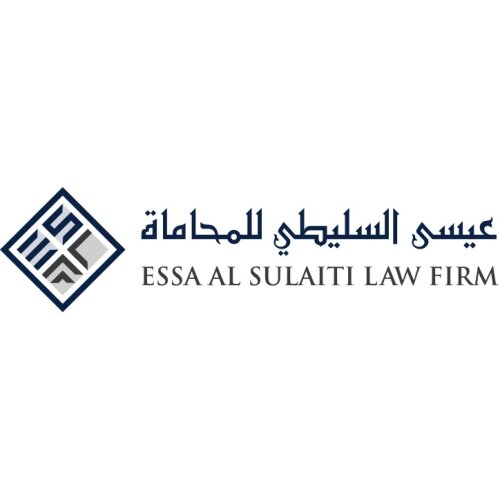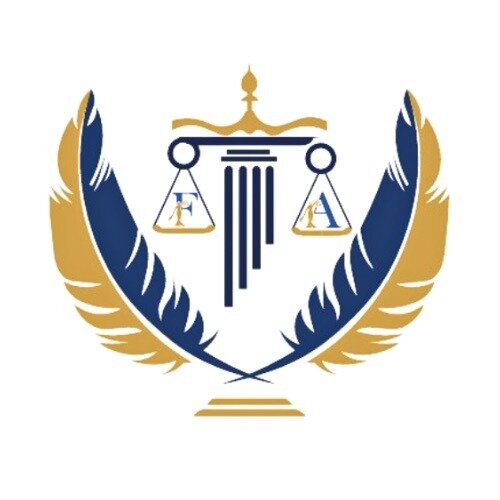Best Wrongful Termination Lawyers in Doha
Share your needs with us, get contacted by law firms.
Free. Takes 2 min.
List of the best lawyers in Doha, Qatar
About Wrongful Termination Law in Doha, Qatar
Wrongful termination occurs when an employer dismisses an employee in breach of their employment contract or in violation of labor laws. In Doha, Qatar, the labor laws protect employees from unfair dismissal and provide avenues for seeking legal recourse in cases of wrongful termination.
Why You May Need a Lawyer
You may need a lawyer in cases of wrongful termination to ensure your rights are protected, to explore legal options for compensation, and to navigate the complex legal procedures involved in resolving employment disputes.
Local Laws Overview
In Doha, Qatar, labor laws establish the rights and obligations of both employers and employees. The law prohibits dismissal of employees without a valid reason and outlines procedures for filing a wrongful termination claim with the Labor Dispute Resolution Committee.
Frequently Asked Questions
1. What constitutes wrongful termination in Doha, Qatar?
Wrongful termination includes dismissal without cause, discriminatory termination, retaliatory termination, and dismissal in breach of employment contract terms.
2. How can I prove wrongful termination?
You can prove wrongful termination through documentation of employment contracts, performance evaluations, communication with your employer, and records of any discriminatory or retaliatory actions taken against you.
3. What remedies are available for wrongful termination in Doha, Qatar?
Remedies for wrongful termination may include reinstatement, back pay, compensation for damages, and penalties against the employer for violating labor laws.
4. How long do I have to file a wrongful termination claim in Doha, Qatar?
You typically have a limited time frame to file a wrongful termination claim, so it is essential to seek legal advice promptly to protect your rights.
5. Can I be terminated for reporting workplace misconduct?
No, retaliation against an employee for reporting workplace misconduct is illegal in Doha, Qatar.
6. Can I sue my employer for wrongful termination?
You can file a claim for wrongful termination with the Labor Dispute Resolution Committee or pursue a civil lawsuit through the courts with the assistance of a qualified lawyer.
7. What evidence should I gather to support my wrongful termination claim?
Evidence may include documents related to your employment, communications with your employer, witness statements, and any other relevant documentation that supports your case.
8. How long does the wrongful termination process take in Doha, Qatar?
The timeline for resolving a wrongful termination claim can vary depending on the complexity of the case and the procedures involved. Seeking legal advice can help expedite the process.
9. Can I negotiate a settlement for wrongful termination with my employer?
You may enter into negotiations with your employer for a settlement, but it is advisable to seek legal advice to ensure that the terms are fair and in accordance with the law.
10. What are the costs associated with hiring a lawyer for a wrongful termination case?
The costs of hiring a lawyer for a wrongful termination case can vary depending on the complexity of the case, the lawyer's fees, and any additional expenses incurred during the legal process. Some lawyers offer initial consultations for free.
Additional Resources
For more information on wrongful termination and labor laws in Doha, Qatar, you can contact the Ministry of Administrative Development, Labor, and Social Affairs or seek guidance from legal aid organizations such as the Qatar Chamber of Commerce and Industry.
Next Steps
If you believe you have been wrongfully terminated and need legal assistance, it is advisable to consult with a qualified lawyer specializing in employment law in Doha, Qatar. They can evaluate your case, provide legal advice, and represent you in seeking justice for your wrongful termination.
Lawzana helps you find the best lawyers and law firms in Doha through a curated and pre-screened list of qualified legal professionals. Our platform offers rankings and detailed profiles of attorneys and law firms, allowing you to compare based on practice areas, including Wrongful Termination, experience, and client feedback.
Each profile includes a description of the firm's areas of practice, client reviews, team members and partners, year of establishment, spoken languages, office locations, contact information, social media presence, and any published articles or resources. Most firms on our platform speak English and are experienced in both local and international legal matters.
Get a quote from top-rated law firms in Doha, Qatar — quickly, securely, and without unnecessary hassle.
Disclaimer:
The information provided on this page is for general informational purposes only and does not constitute legal advice. While we strive to ensure the accuracy and relevance of the content, legal information may change over time, and interpretations of the law can vary. You should always consult with a qualified legal professional for advice specific to your situation.
We disclaim all liability for actions taken or not taken based on the content of this page. If you believe any information is incorrect or outdated, please contact us, and we will review and update it where appropriate.
















